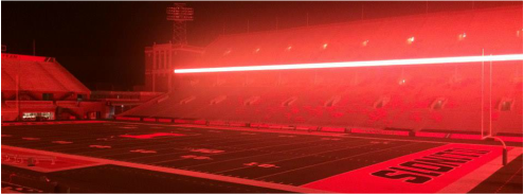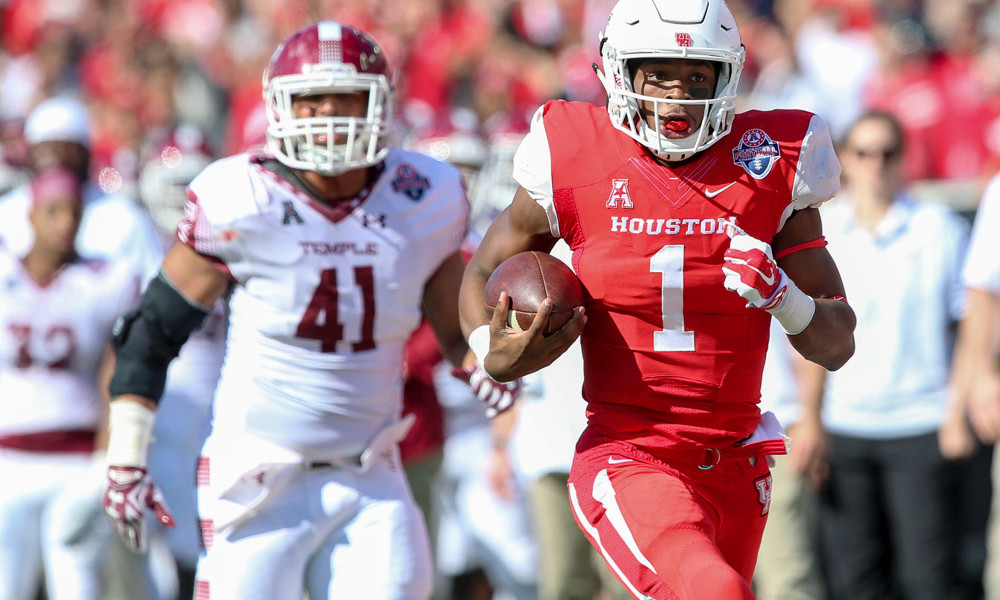
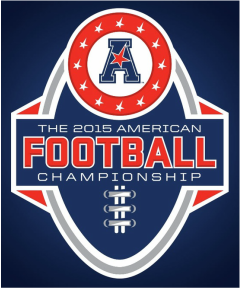
For starters, Temple’s defense did its job in this inaugural American Athletic Conference championship game. Push comes to shove, that’s the reality. It held Houston 18 points and 160 yards under its season averages for both. Though bloodied a bit in the first half, it dominated the Cougars’ vaunted offensive attack after intermission and gave the Owls and their fans hope with series after series of forced 3-and-outs. Secondly and thirdly, the two guys who will take the brunt of this loss – QB P.J. Walker and WR Robby Anderson – were positively brilliant in defeat, and it’s pretty pathetic that the tired, mindless ramblings of “you can’t win if you turn the ball over” is being used as the narrative to explain this game. Absolutely ridiculous. Yes, Walker made a bad decision, trying to pull off a miraculous pass while being sacked, and it resulted in an INT, and yes, Anderson did get stripped of the ball after hauling in a pass from Walker, and it resulting in a fumble recovered by Houston at its own 9. Guess what, after both of those “insurmountable obstacles” that took place within the game’s first 10 minutes, Temple found itself with the ball back in the first quarter and facing a less-than-overwhelming 7-0 deficit. For the game, Walker was 26 of 44 for 287 yards, connecting with Anderson on a 13-yard TD that he had to fit through a pinhole, and ran for another 26 yards on five carries while Anderson hauled in 12 aerials for 150 yards. Again, both were brilliant. Trying to place blame on them or the turnovers attached to their names in this one is ridiculous. The Owls have no offense, no points, no nothing in that game without either.
2. Poor officiating
Amazingly, this centered around the performance of one individual and the referees failing to enforce the rules. All game, Houston DB William Jackson III was being credited with making play after play and doing so with almost All-American aplomb. Only every replay showed the young man clutching and grabbing and holding OR blatantly interfering every single pass attempt that came to a Temple receiver in his vicinity. It was uncanny. Jackson was credited with seven pass breakups and could have been arrested for seven muggings. Finally, in the fourth quarter he got flagged for pass interference. He bitched and moaned about it. Two plays later, his interference was even more egregious. No flag. Unreal. It got to the point that ABC analyst Chris Spielman recognized how silly his own description of great play by Jackson had gotten that he reverted to rationalizing that Temple receivers should recognize how the officials were calling the game and get just as physical with Jackson. What he should have been going off on was how bad the officiating was. It was brutal all game, specifically in regard to Jackson, and that played as big a role in the outcome of the game as anything else, including Houston QB Greg Ward Jr.’s incredible improvisational skills.
3. Worse play calling and game management
Sorry, plenty happy here that Temple signed head coach Matt Rhule to an extension less than 48 hours after the loss, too, but he and offensive coordinator Marcus Satterfield really need to be held accountable for the disaster that was the game-day operations for the Owls’ offense in this one. Again, they wasted an incredible amount of time and effort to get RB Jahad Thomas going, even when it was obvious that was not going to happen almost from the outset. This has hurt the Owls ever since that 7-0 start, because Thomas has not been the same player he had been before then. They are now 3-3 since, and the offensive braintrust adapted once – for Memphis – and Temple enjoyed its best all-around effort of the season, utilizing other RBs and Walker’s arm, and then Rhule-Satterfield went right back to their pacifier. Why, who knows? By intermission, Thomas had nine carries for 30 yards. Heading into their final series, with they began with 5:05 remaining and down 11, he had 17 carries for 48. The fact they even considered running him was ridiculous. For starters, there wasn’t enough time. Of course, he rips off a 19-yarder on one carry to do just enough for the numnuts out there to justify the play-calling to further muddy the real responsibility. Of course, on the next play, he gets just two yards. Temple wasted almost 60 seconds on those two plays. Later, Rhule allows 33 seconds to run off the clock before calling a timeout. That’s just bad play calling and game management, people. It just is.
4. Awards for standout senior LB ... poof
You name the national defensive award and pretty much Temple’s Tyler Matakevich is in the running for it. Well, “was” maybe the correct word if voters held off until post-game Saturday to make their selections. Twice this season, the Owls’ top defender, perhaps the top defensive player in the history of the school’s program, was tasked with handling cat-quick QBs, and if he did so, the game was over. Both times, sadly, T-Mat failed. Just a month after getting embarrassed by South Florida’s Quinton Flowers, often left grasping at blades of grass as the Bulls QB sped by him, he endured much the same with Houston’s Ward. Those 47- and 10-yard TD runs by the Cougars’ QB, yep, both falls on Matakevich’s shoulders … or on his empty hands as he swatted at air while Ward deked him out of his socks. Yeah, he still led the Owls with eight tackles, giving him that honor in every game this season – something achieved by no other FBS player for his own team. But this was a chance for him to really shine, to really show that he could handle the type of speed and quickness he’ll have to face at the next level, to redeem himself for the fiasco in Tampa, Fla., and Temple needed him to do so … and Matakevich did not. Great career, no doubt. But he was exposed. Again.
5. Bowl scraps ... ridiculous
By losing that game, Temple not only lost a chance to get a bid to the Peach Bowl, but it received arguably the worst “prize” out of all eight AAC teams who will be bowling this holiday season. Somehow that doesn’t seem to compute when you factor the Owls were playing for conference honors Saturday. The red flags, for me, started to raise when Navy and South Florida both were offered spots in the Military and Miami Beach bowls, respectively, and accepted before Temple and Houston even took the field. Not really sure how the AAC could allow that. It’s poor business to limit those that have earned “better” to merely scramble for scraps while “lesser” teams, or those who didn’t reach the title tilt, got to choose before Saturday’s runner-up got its crack. Consider this: the AAC has tie-ins with the Military, Birmingham and Independence bowls, and would be set to face competition from the ACC, SEC and ACC in them. That Temple isn’t in one of those, against more prestigious competition, is a disgrace. USF gets the Conference USA champ (Western Kentucky), Connecticut gets C-USA’s Marshall in the St. Petersburg Bowl and Cincinnati gets a trip to Hawaii to face Mountain West champ San Diego State. Temple, meanwhile, gets a non-champ (Toledo) from a league (Mid-American) that is seen in a much lesser light than all of the aforementioned, regardless of whether that team happens to be the toughest foe remaining for any AAC squad.
- Jack Kerwin | [email protected]
RELATED
American Athletic Conference title-game preview
Coaches highlight AAC title-game matchup
Houston, Herman earned berth in AAC title game



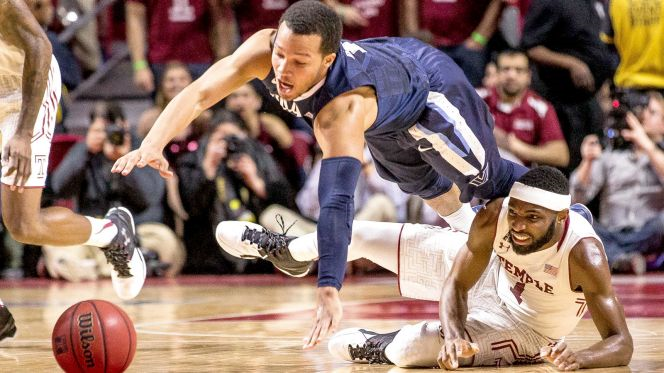
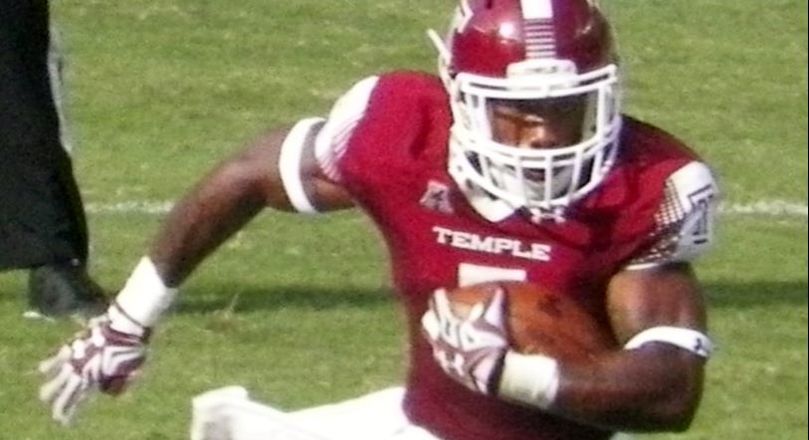
 RSS Feed
RSS Feed

